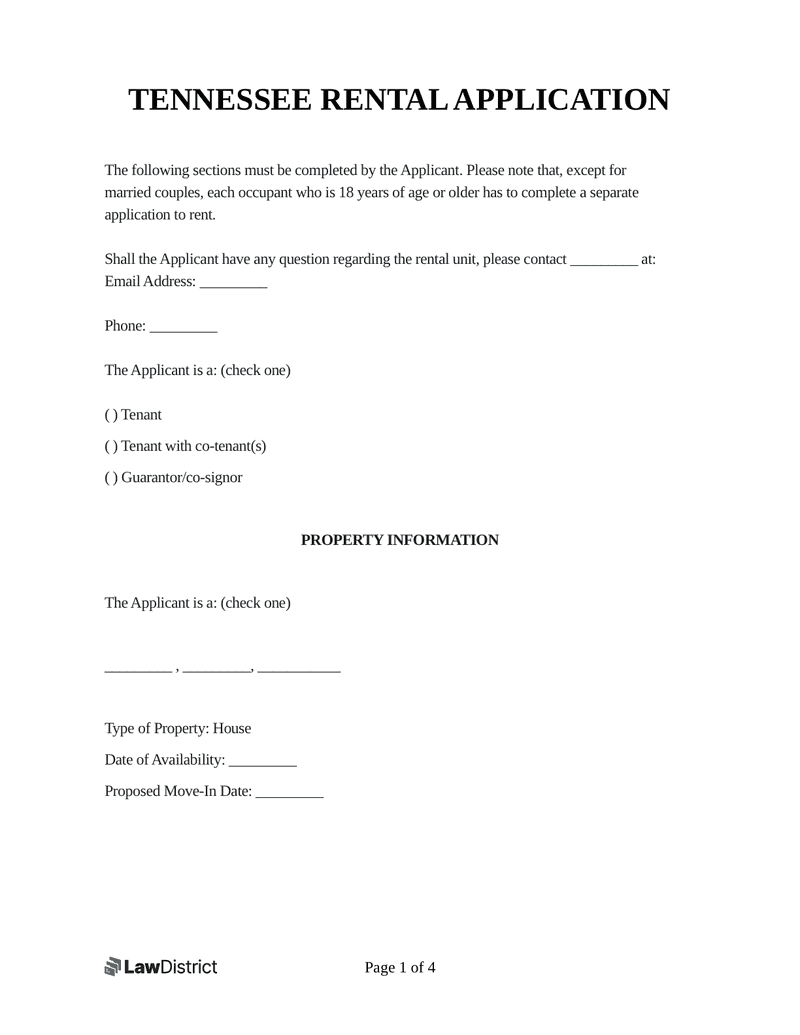Tennessee has many rules and statutes regulating its housing market. These must be fully considered when preparing an application for rental properties in the state.
Application Fee
There is no limit in terms of what application fee can be charged by Tennessee landlords. Furthermore, the application fee is non-refundable regardless of its amount.
Security Deposit
Similar to the application fee law, there is no Tennessee statute defining a limit on the amount landlords can charge tenants for security deposits.
Apart from this, there are 6 other basic pieces of information for landlords regarding security deposits, these are:
- Separate account: It must be stored in a separate account and does not have to earn interest.
- Notice: Provide notice to the tenant that the deposit is in a different account.
- Deposit retention: It may be kept due to damages, nonpayment of rent, or violations of the lease agreement.
- Inspection: A walk-through inspection is permitted (§ 66-28-301).
- Giving back the deposit: It must be returned within 60 days.
- Sold property: If you sell the property, you must transfer the deposit to the new owner.
There is also no requirement for the provision of receipts or holding requirements.
However, the landlord is obligated to keep valid records of any security deposits they are sent.
Housing Discrimination Law
In Tennessee, there is no specific state law relating to housing discrimination. However, the Fair Housing Act (FHA) is in place. The FHA states that it is illegal to discriminate based on the following characteristics:
- Race
- Color
- Nationality
- Religion
- Sex
- Familial status
- Disability
- Criminal history
As a consequence, you are not allowed to ask for any of these details on a Tennessee Rental Application form nor to include them in the decision-making process.
Notice of Eligibility
Potential tenants must be informed about the screening criteria and reasons for denial or approval. To prove that these facts were shared, a signature of acknowledgment must be provided within the application or alongside it.
Consent Credit Check
Within Tennessee, federal law is in effect that requires potential renters to provide written consent for a credit history check during the application process. This is known as the Federal Credit Reporting Act (FCRA).
If you deny a tenant based on information found in a credit report, you must notify them of this decision with a description of up to 4 factors.
This is known as an “Adverse Action Notice”. Generalized terms such as “poor credit history” do not meet the criteria for this type of notification.
Generally, statements given by consumer reporting agencies meet the standards of the notice.
